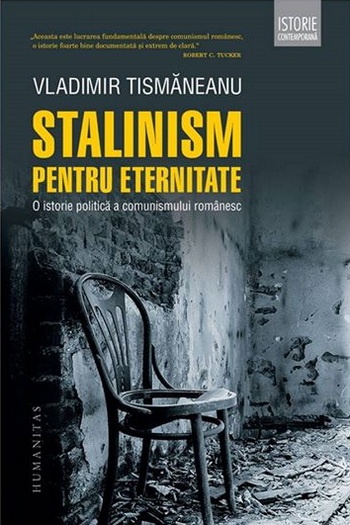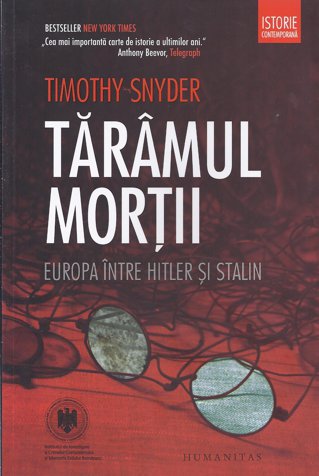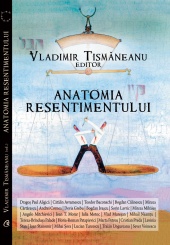Posedații bolșevici au fost urmașii lui Serghei Neceaiev și ai colegilor acestuia. Neceaiev a fost prototipul care l-a inspirat pe Dostoievski pentru construcția personajului de o infinită amoralitate Piotr Verhovenski din romanul „Demonii”. Asemeni posedaților dostoievskieni, bolșevicii erau fanatici convinși că fericesc umanitatea, indiferent de metodele utilizate. În plus, ei erau înarmați cu o doctrină ce se pretindea infailibilă. Tocmai această aroganță epistemică l-a ferit pe Lenin de îndoieli și l-a făcut imun la orice considerente „sentimental-burgheze”.
Theses and antitheses: W. H. Auden on the invasion of Czechoslovakia (August 1968
29/08/2016“The ogre does what ogres can
Deeds quite impossible for man.
But one prize is beyond his reach…
The ogre cannot master speech.
About a subjugated plain
Among its desperate and slain
The ogre stalks with hands on hips
While drivel gushes from his lips.”
The streets of Prague during the invasion, photo pe Josef Koudelka
Surreal history…
25/08/2016Lena Constante (1909-2005) was a Romanian graphic artist, a left-wing intellectual and a free spirit. She was married to Harry Brauner (1908-1988), a brilliant ethno-musicologist, surrealist painter Victor Brauner’s brother, and no less of a free spirit. They were both close friends with the Marxist intellectual and Communist luminary Lucretiu Patrascanu and his wife, Elena (Hertha). This was their misfortune: they were arrested, tortured, and sentenced to lo…ng jail terms in the Patrascanu trial, the last Stalinist frame-up in Eastern Europe (April 1954, Albania was the exception). All the defendants pleaded guilty, minus Patrascanu. who spat upon the false witnesses.
One year after Stalin’s death, his Romanian protege, Gheorghe Gheorghiu-Dej, feared that the former minister of justice could represent an alternative to his autocratic power. All the Politburo members approved the death sentence. In April 1968, theree years after Dej’s demise, Lucretiu Patrascanu and the alleged members of a the fictitous conspiracy were rehabilitated. In his case, posthumously…
Lena’s memoir titled “The Silent Escape” came out in French in the early 1990s, then in Romanian from Humanitas and in English, from the University of California Press with a preface by UCLA professsor Gail Kligman. In my essay broadcast today by Radio Free Europe I explore Lena Constante’s life and fate…
Eternul eretic Panait Istrati
10/08/2016“Bunăstarea umanității nu mă interesează decât din clipa in care incetează de a mai fi criminală și devine morală” (The well-being of mankind concerns me only from the moment when it ceases to be criminal and is becoming moral)–Panait Istrati (1929) One of the first to expose the God that failed, Istrati was close friends with Victor Serge and Boris Souvarine. He wrote the foreword to George Orwell’s first book translated into French.
Cristina Luca-Boico, une grande résistante
08/08/2016In warm memory of my aunt, my mother’s sister, Cristina Luca-Boico, neé Bianca Marcusohn (born in Botoșani, Romania, August 8, 1916 – died in Paris, France, April 16, 2002). For her heroic deeds in the French resistance, as chief of the FTP-MOI ( Francs-tireurs et partisans – main-d’œuvre immigrée) intelligence unit, she was granted the Médaille de la Résistance.
Clive James is right: “…there really can be such a creature as an incorruptible human being, and it quite often takes a woman to be one.” (“Cultural Amnesia: Necessary Memories from History and the Arts,” New York, Norton, 2007, p. 365)

2014, TF1 series “Résistance,” Cannes festival award-winner Cristina Flutur plays Cristina Luca, Bianca’s nom de guerre…
For Mary, on her birthday, wholeheartedly
03/08/2016“Shall I compare thee to a summer’s day?
Thou art more lovely and more temperate.
Rough winds do shake the darling buds of May,…
And summer’s lease hath all too short a date.
Sometime too hot the eye of heaven shines,
And often is his gold complexion dimmed;
And every fair from fair sometime declines,
By chance, or nature’s changing course, untrimmed;
But thy eternal summer shall not fade,
Nor lose possession of that fair thou ow’st,
Nor shall death brag thou wand’rest in his shade,
When in eternal lines to Time thou grow’st.
So long as men can breathe, or eyes can see,
So long lives this, and this gives life to thee.”
Shakespeare’s Sonnet #18




 Posted by tismaneanu
Posted by tismaneanu 




































